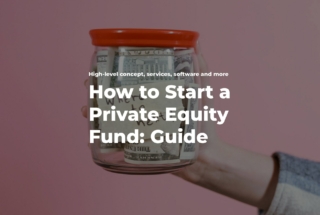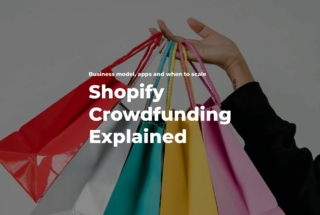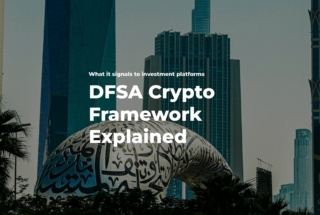What to Do When Your White-Label Crowdfunding Platform is No Longer Viable
No time to read? Let AI give you a quick summary of this article.
Why do one-person companies choose white-label crowdfunding software? For some, a white-label solution is a great way to start their investment business with no coding skills while focusing only on sales and marketing of the product.
For others, a white-label platform is the fastest way to test their business idea, find the right audience, define competitive selling points, and establish a brand.
Many white-label crowdfunding platforms offer great out-of-the-box functionality including:
- debt or equity investment flows;
- automated or manual KYC/AML verification;
- online or offline payment processing;
- account management;
- fees and ROI calculator;
- wallet management;
- deal management;
- SEO management;
- theme configuration and branding;
- reporting, document import and export;
- secondary market;
- APIs integration, etc.
Take LenderKit, for example, a white-label crowdfunding platform that offers several solutions such as Demo Prototype and MVP Operational.
Depending on your purposes, each of these solutions can fully satisfy your needs.
With an interactive Demo Prototype, you can easily pitch to investors to raise funds or find like-minded entrepreneurs to start your new venture together.
On the other hand, with MVP Operational, you can provide online investment or crowdfunding services to real audiences.
Find more information about Demo Prototype and MVP Operational here: “3 Solutions for Building a Crowdfunding Platform”
For now, we’ll focus on why these solutions may not be working for you. In other words, what to do when your white-label crowdfunding platform is no longer viable.
What you will learn in this post:
Formalise the requirements for a crowdfunding platform
If a white-label solution doesn’t work for your business model or with your particular audience, then there is definitely a reason for that.
The first and most important step is to write down all of the technical and non-technical issues that frustrate you.
A bad example would be:
“We just don’t like the things work in this white-label solutions, it’s kinda sloppy, bumpy, and overall non-user-friendly. We need something else.”
Such formalisation neither tells you anything specific about your problem nor does it help a development partner identify your requirements.
A good example would be:
- We need to have our investors and fundraisers upload POI (proof of identity) documents. We want to encrypt and store that data on our servers because we don’t know where the data is stored on our current white-label solution.
- As an investor, I want to sign and get my Share Purchase Agreement on the Dashboard.
- As an admin, I want to create an Attorney account on the site, so Attorney can submit Share Certificate for Investors.
- As a fundraiser, I want to start a KYC process with any of suggested services such as MangoPay1, Vix Verify2, etc.
- We want to be working with one payment system such as Goji investments3, for example, because others have higher fees.
When you start working with a crowdfunding platform development partner, formalisation of the “wants” and “needs” is the first step when creating an SRS, software requirements specifications document.
If you want to shorten the discovery phase and save more money for the development, you can delegate this task to your team or do it yourself if you’re a one-person company.
Prepare your data for migration
There is a catch to every white-label solution. Behind the fancy functionality it offers, a third-party platform often locks up your data making it complicated to trace back, manipulate, and migrate.
As long as there are no disputes, a white-label solution is just fine.
However, it’s naive to deny the fact that some of the deals may be insincere.
What happens if one of the deals have been claimed fraudulent? What if you need to trace back all of your data on a particular account or company?
Data privacy puts your venture at a serious risk which you can minimize by developing your own crowdfunding platform.
Usually, white-label platform providers offer additional development services, so they can upgrade your solution to a standalone one migrating all of your data on your servers.
Ensure compliance with local financial regulations and policies
Regulations-compliance is one of the reasons why you may want to go custom. There are a lot of crowdfunding and P2P lending white-label solutions out there, but most of them are the US or UK regulations-compliant.
Depending on the country, crowdfunding is regulated differently. For example, SEC regulates the USA crowdfunding market, FCA regulates European crowdfunding, and SAMA is responsible for regulating Saudi Arabia.
Recommended: “FCA and other stories: what you need to know to register your crowdfunding business in different countries.”
If you focus on debt or lending crowdfunding only, then you’ll start competing with banks and may face more strict regulation compliance procedures compared to reward-based crowdfunding which is more of a pre-sale practise. In this case, you may require credit scoring API, deeper identity verification, etc.
Likewise, should you pursue equity-based crowdfunding, you’ll have to ensure clarification of financial rules and assets liquidity through a secondary market.
Country-specific policies include different financial regulations:
- Investment limits for accredited and non-accredited investors;
- Fundraising limits per annum;
- Campaign advertisement restrictions and prohibition;
- Regulations of types of shares and their tradability, etc;
- Taxation of investments and raised funds;
Analysing your country regulations is the most important step when starting any finance-related business. And since you’ve decided to move to a custom crowdfunding platform, you have to do the research.
Currently, we are working on developing partnerships with legal consulting firms that focus on crowdfunding and investing to help our clients with their due diligence, so subscribe now to get notified on the most important updates from us.
Find a crowdfunding platform developer
Ideally, there has to be a team of developers behind the white-label crowdfunding platform you’re currently using.
You may try to pitch to them to find out if they are offering any custom software development or at least the source code access.
If you have a source code license, you can hire an external development team and curate the process on your own. However, you will have to find professional crowdfunding platform developers to spend less time educating them.
The only problem with having a source code and ruthlessly refactoring it is that you will probably have to cut off the unnecessary features which you’ve already paid for. For some, that may feel like a waste while others find it useful to have ready-made reusable blocks of code.
If you have the source code and want to start building your own crowdfunding platform, the best way to collaborate would be sticking to the time and material business model or hire a dedicated team.
However, before you start working with a development partner, you have to heavily review them if they have the right expertise.
How to review the crowdfunding software development partner
If we were to look for a software development partner, we would heavily bet on their online visibility and digital footprint. In other words, check out their portfolio, customer reviews, companies listings, partnership network, and response time.
Most people analyse portfolio by simply going through the landing pages on the company’s website looking at images and descriptions. However, the best way to check out the portfolio is to actually visit those sites which a potential development partner has been working on.
- Are those websites still functioning? How long have they been running? What has changed? What hasn’t?
- What do customers think about the development partner? What do customers of their customers think?
- What companies listings4 are they present on? Who is behind those listings? How does one get there?
- What partners does your development partner have? How big the partnership network is?
- How long does it take them to respond to your emails? Is their English good? How well do they communicate? How detailed their responses are?
These questions should help you review a development partner before you start to build your own crowdfunding platform.
If you have any questions about crowdfunding platform development services or what to schedule a LenderKit demo, feel free to contact us at lenderkit@justcoded.com.



